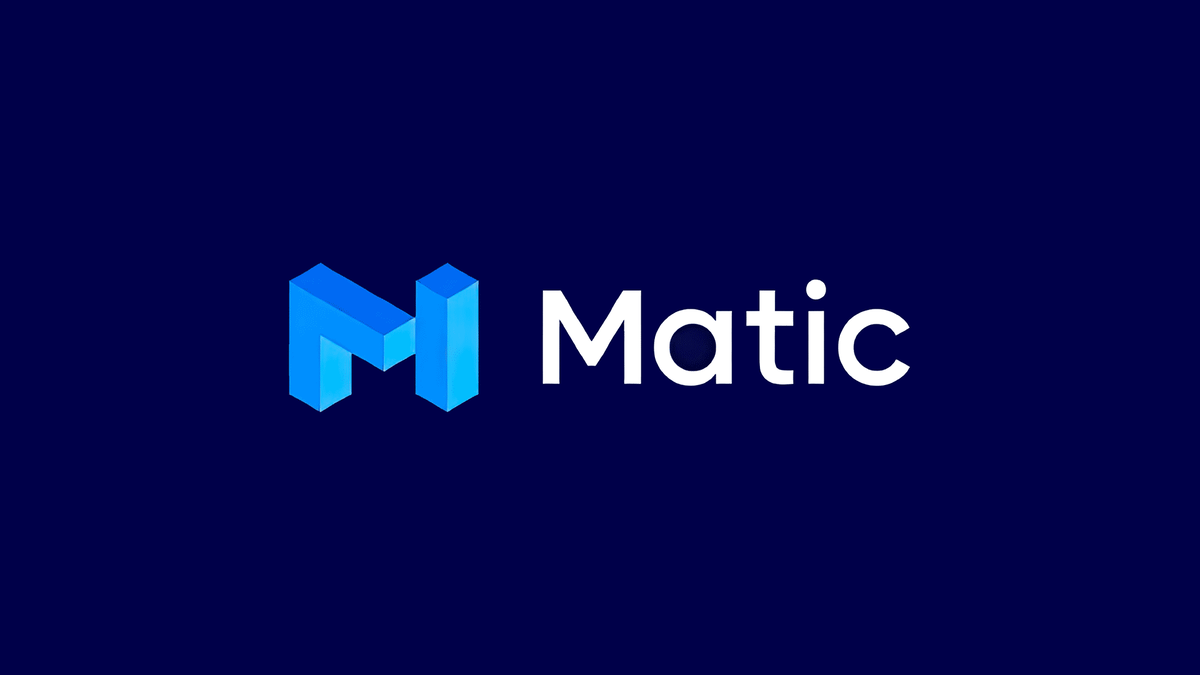Overview of Cryptocurrency Regulations in Switzerland and Their Impact on Investors in 2025
For anyone considering involvement in the virtual asset sector in this country, obtaining a clear grasp of the local legal framework is indispensable. Engaging with the financial marketplace requires thorough comprehension of guidelines set forth by the Swiss Financial Market Supervisory Authority (FINMA) to ensure compliance while pursuing investment opportunities.
FINMA’s Classification plays a pivotal role in determining the legal status of various types of tokens. Depending on their functionality–utility tokens, payment tokens, or asset tokens–entities may face different obligations. For example, asset tokens may fall under securities law, necessitating adherence to stringent regulations while utility tokens often enjoy a more lenient approach.
Prospective startups should also explore the Self-Regulatory Organizations (SRO), which offer a streamlined process for compliance. By aligning with one of these bodies, businesses can enhance their credibility and ensure adherence to anti-money laundering policies, essential for cultivating trust among users and investors alike.
A clear understanding of tax implications is crucial. Tax treatment of asset holdings can differ significantly based on their classification. Engaging with local tax authorities or experts will aid in navigating obligations effectively and help in optimizing financial strategies related to asset transactions.
Overview of Swiss Cryptocurrency Laws
The Swiss financial authority, FINMA, has laid out specific guidelines for businesses and individuals involved in virtual currencies. Compliance with these directives is non-negotiable for any entity wishing to operate in this sector. Businesses must ensure they are classified correctly under Swiss law, as the classification determines the regulatory obligations. Common categories include securities dealers, payment service providers, and collective investment schemes.
Licensing is mandatory for entities seeking to provide services related to token offerings or exchanges. These companies must engage in thorough due diligence and implement anti-money laundering (AML) measures. It is advisable to obtain legal counsel to navigate complex compliance requirements effectively.
The legal framework distinguishes between different types of tokens: payment tokens, utility tokens, and asset tokens. Each category carries different implications regarding their treatment under existing laws. It is critical for businesses to accurately identify the type of tokens they issue or trade, as this will influence the applicable legal obligations.
Tax treatment also varies significantly. Gain derived from trading tokens may be classified as either income or capital gains, based on individual circumstances. Consulting tax experts familiar with local laws is recommended to optimize tax liabilities.
Engaging with local regulators can facilitate smoother operations. Establishing a cooperative relationship with authorities helps in better understanding compliance expectations. Periodic updates to the law necessitate staying informed about amendments and new proposals that could affect operations.
Key Regulatory Authorities Involved in Cryptocurrency
Investors and businesses must engage with several key organizations overseeing the market for virtual assets. Each authority has distinct responsibilities and mandates that shape the environment for operations in this sector.
Swiss Financial Market Supervisory Authority (FINMA)
FINMA regulates financial intermediaries and enforces compliance with anti-money laundering standards. Its guidelines clarify which activities involving digital tokens require licensing. FINMA also provides feedback on how specific tokens may be classified, aiding entities in determining their regulatory status.
Swiss Federal Tax Administration (FTA)
The FTA oversees taxation related to virtual currencies. It ensures that profits from trading assets are properly reported and taxed. It is crucial for taxpayers to understand potential implications on wealth and income tax obligations, along with any applicable capital gains taxes.
| Authority | Function |
|---|---|
| FINMA | Licensing and supervising financial market participants |
| FTA | Taxation and compliance on financial gains |
| Swiss National Bank (SNB) | Monetary policy and financial stability assessments |
| Anti-Money Laundering Authorities | Monitoring and enforcing compliance with financial crime regulations |
Engagement with these regulatory bodies is essential for anyone looking to operate or invest in this dynamic space. Ensuring compliance with their guidelines can lead to a more sustainable and legally sound business model.
Tax Implications for Cryptocurrency Transactions
Transactions involving virtual assets are subject to taxation. Individuals must report profits from the sale of these assets as capital gains. The applicable tax rate varies depending on the total amount of income, ranging from 0% to approximately 40%. For assets held for more than one year, individuals may benefit from a reduced capital gains tax rate.
Classification of Assets
Assets are classified into two categories: private and business assets. If an individual engages in trading as a professional, profits are classified as income rather than capital gains, leading to higher tax rates. Maintaining clear records of transactions, including dates, values, and type of asset, is crucial for accurate reporting and compliance.
Deductions and Losses
Losses incurred from the sale of assets can offset gains in the same tax year, providing potential tax relief. Individuals can also deduct transaction fees and other related expenses. It’s advisable to consult with a tax professional to maximize deductions and ensure compliance with tax obligations.
Compliance Requirements for Crypto Businesses
Businesses operating in the field of virtual currencies must register with the Financial Market Supervisory Authority (FINMA) to ensure adherence to local principles. This registration involves providing detailed information about the business structure, ownership, and financial framework.
Conduct a thorough risk assessment focusing on customer due diligence and anti-money laundering procedures. It’s crucial to implement Know Your Customer (KYC) measures that verify user identities before engaging in transactions. Specify the criteria for acceptable identification documents and maintain records for a minimum of five years.
Establish a compliance program that includes a designated compliance officer who will oversee adherence to applicable laws. This officer must possess adequate knowledge of financial legislation and relevant compliance practices. Regular training for staff on compliance matters is essential to mitigate risks associated with illicit activities.
Implement transaction monitoring systems to detect and report suspicious activities. Financial businesses must file reports to authorities if transactions exceed predefined thresholds or exhibit unusual patterns. Ensure that internal reporting mechanisms facilitate timely communication of potential issues.
Adopt robust cybersecurity measures to protect user data and funds. Compliance with data protection laws, such as the Federal Data Protection Act, is mandatory, ensuring consumer information is securely stored and processed.
Regularly review and update policies to align with any changes in legislation and market practices. Participating in industry groups and staying informed about trends can aid in maintaining compliance and best practices.
Incorporate internal audits to assess the effectiveness of compliance measures and identify areas for improvement. Documentation of audits and corrective actions taken will be beneficial during regulatory assessments.
Consumer Protection Measures in the Swiss Crypto Market
Swiss authorities have implemented robust consumer safeguards for participants in the crypto sector. Key measures include registration requirements for service providers with the Swiss Financial Market Supervisory Authority (FINMA), ensuring that these entities adhere to strict operational guidelines designed to protect investors.
Transparent Communication
Companies are mandated to provide clear and accurate information regarding their services, fees, and potential risks associated with investments. This transparency fosters informed decision-making among users, encouraging them to thoroughly understand the products offered before committing funds.
Anti-Money Laundering Protections
Measures to combat laundering facilitate a safer environment for consumers. Entities are subject to rigorous Know Your Customer (KYC) practices, which necessitate the verification of user identities. This process helps mitigate fraud, ensuring that clients engage with legitimate platforms and reducing the risk of financial loss.
Future Trends in Swiss Cryptocurrency Regulation
As the market matures, expect tighter scrutiny on asset service providers. Authorities will likely enhance compliance requirements to mitigate financial crime risks. Firms should prepare for stricter KYC (Know Your Customer) and AML (Anti-Money Laundering) measures.
Potential Shifts in Taxation Practices
Tax obligations are anticipated to evolve. Transparent reporting will become more common, leading to a standardized framework across jurisdictions.
- Prepare for clearer guidelines on capital gains taxation.
- Consider consulting tax professionals to navigate potential complexities.
- Monitor updates from the Swiss Federal Tax Administration (SFTA) for new protocols.
Digital Asset Classification
Future developments may focus on classifying different forms of value transfer and ownership. Enhanced clarity regarding what constitutes a financial instrument will shape compliance strategies.
- Stay informed about legislative proposals defining assets.
- Adapt business models to align with emerging asset categories.
- Engage with industry groups to influence legislative processes.
Anticipating these shifts will be crucial for maintaining operational integrity. Establishing adaptive strategies will ensure sustainable growth amidst changing directives.
Q&A: Overview of Cryptocurrency Regulations in Switzerland
How does the Financial Market Infrastructure Act apply to cryptocurrency companies in Switzerland?
The Financial Market Infrastructure Act regulates trading facilities, DLT trading facilities, and other financial service providers, including those operating in the cryptocurrency industry. Cryptocurrency companies in Switzerland must comply with this law, particularly if their tokens qualify as securities or if their business involves a cryptocurrency exchange. These regulations aim to ensure financial stability and market transparency.
What are the licensing requirements for operating a crypto business in Switzerland?
To operate a crypto business in Switzerland, companies must meet specific licensing requirements depending on their activities. If a cryptocurrency company in Switzerland provides custodial services or operates as a cryptocurrency exchange, it must be supervised by FINMA and comply with the Anti-Money Laundering Act. VASPs in Switzerland are also subject to regulatory oversight to prevent money laundering and ensure consumer protection.
How does Switzerland regulate initial coin offerings and the classification of crypto assets?
FINMA guidance outlines that initial coin offerings must comply with Swiss laws and regulations, particularly if the crypto asset involved qualifies as a security. FINMA may classify tokens as payment, utility, or asset tokens, and companies must assess whether their tokens qualify as securities to determine applicable compliance measures under cryptocurrency legislation and financial regulations.
What is the role of blockchain technology in shaping the future of the cryptocurrency market in Switzerland?
Blockchain technology forms the backbone of the blockchain ecosystem in Switzerland, particularly in regions like Crypto Valley. Blockchain in Switzerland is not only used for cryptocurrencies but also for applications across real estate, finance, and supply chain. The country’s advanced approach to crypto regulation in Switzerland and its support for distributed ledger technology have made it a global hub for blockchain and cryptocurrency innovation.
How have cryptocurrency laws and regulations evolved between 2021 and 2023 for financial institutions involved in cryptocurrency trading?
Between 2021 and 2023, cryptocurrency laws and regulations have become more structured for financial institutions engaged in cryptocurrency trading. Financial market regulations now require compliance with anti-money laundering regulations, greater transparency in the handling of cryptocurrency assets, and stricter oversight of derivative products based on bitcoin and other digital assets. These changes aim to ensure stability within the global cryptocurrency ecosystem.
What are the legal requirements for running a crypto company in Switzerland and how do they relate to fiat currencies and compliance?
A crypto company in Switzerland must adhere to specific regulations that govern cryptocurrency or virtual currency operations. These include maintaining compliance with financial regulations, particularly anti-money laundering requirements, and ensuring that all transactions involving fiat currencies and cryptocurrency assets are properly recorded. Cryptocurrency exchanges in Switzerland are also expected to register and be monitored by FINMA.
How do cryptocurrency and blockchain regulations apply to real estate in Switzerland?
Cryptocurrency and blockchain regulations are beginning to intersect with real estate in Switzerland, as blockchain technology is used to tokenize property and facilitate transactions. While bitcoin is not considered legal tender, it is accepted as a means of payment in some real estate deals. All such activities in Switzerland must still comply with financial market regulations and the legal framework governing cryptocurrency.
What specific regulations govern the nature of cryptocurrency and its classification within Switzerland?
In Switzerland, the nature of cryptocurrency is defined by its intended use—whether as a means of payment, a utility, or an asset. Regulations apply based on this classification, and cryptocurrency exchanges in Switzerland must operate under clearly defined rules. These specific regulations ensure compliance with financial market regulations and help integrate cryptocurrency in Switzerland into the broader legal and economic system.

